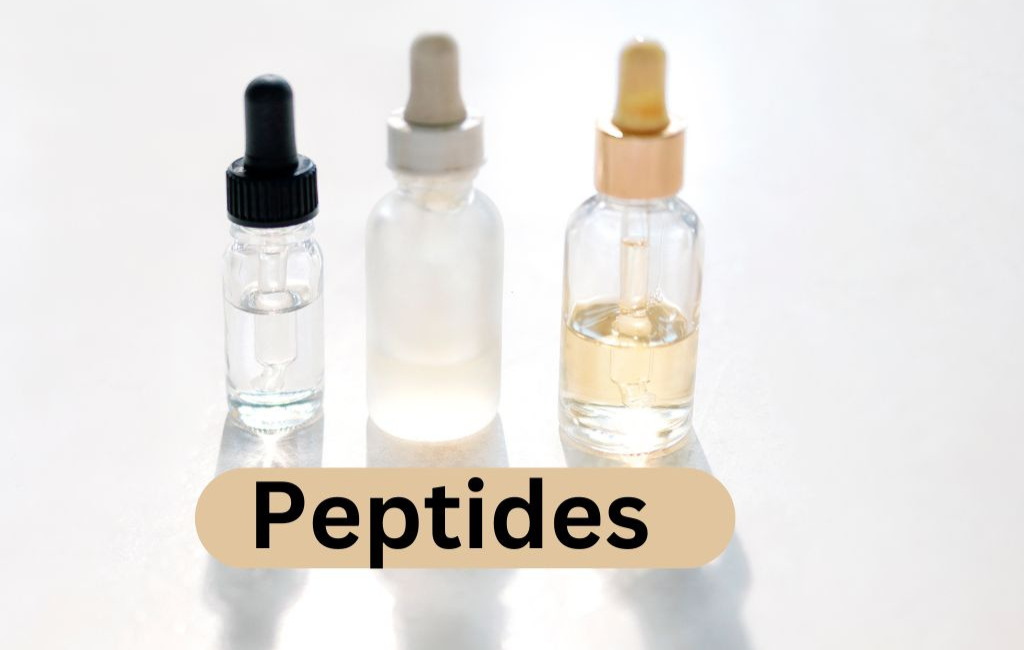From Laboratory to Life: Just How BPC 157 Peptides Are Transforming the Game in Health and Health
Introduction
In the ever-evolving globe of wellness and wellness, new developments remain to emerge, reshaping our understanding of healing and healing. One such technology is BPC 157 peptides, a compound that has been getting considerable focus for its potential restorative benefits. Derived from a normally taking place healthy protein in the stomach, BPC 157 (Body Safety Compound-157) has actually revealed assurance in numerous areas, including sporting activities medicine, rehabilitation, and also mental wellness. This short article delves deep right into how BPC 157 peptides are revolutionizing health and wellness and health, exploring their devices of action, applications, and much more.
What Are BPC 157 Peptides?
BPC 157 is classified as a peptide– a tiny chain of amino acids that can exert various biological impacts in the body. What makes BPC 157 bpc 157 uses unique is its beginning; it’s derived from a protein located in gastric juice. This substance has been researched mainly for its recovery residential properties and capacity to promote tissue regeneration.
The Framework of BPC 157 Peptides
The structure of BPC 157 comprises 15 amino acids. Its series consists of crucial amino acids that play crucial roles in many biological procedures such as cell signaling, metabolism, and immune response.
How Do BPC 157 Peptides Work?
BPC 157 works mainly by boosting blood circulation to harmed locations and accelerating the recovery procedure. It does this through a range of systems:
- Promoting angiogenesis (the formation of new blood vessels).
- Reducing inflammation by modulating immune responses.
- Protecting cells from oxidative stress.
These actions add to quicker healing times from injuries and enhanced tissue repair.
From Laboratory to Life: The Scientific Research Behind BPC 157 Peptides
Extensive research study on BPC 157 has actually been performed over the years, disclosing its diverse duties in promoting health. Researches have mostly concentrated on its impacts on muscle mass injuries, ligament repair, bone recovery, and even stomach disorders.
Animal Research studies on BPC 157
Most researches have actually been performed on pet models. In these researches, scientists noted substantial enhancements in healing times adhering to numerous kinds of injuries– ranging from ligament ruptures to fractures.
Human Trials: What We Understand So Far
While human trials are restricted, initial findings recommend that BPC 157 might provide comparable benefits in humans as observed in animal research studies. Nonetheless, much more considerable scientific tests are needed to totally comprehend its efficacy.
Therapeutic Applications of BPC 157 Peptides
1. Sports Medicine: Enhancing Recovery
Athletes typically place their bodies through severe stress and anxiety throughout training or competitors. Right here’s where BPC 157 comes into play:
- Accelerated Muscle Recovery: Post-exercise soreness can be reduced with using this peptide.
- Injury Avoidance: By enhancing general joint health and wellness, athletes might find themselves less prone to injuries.
2. Intestinal Health: A Special Perspective
Interestingly, BPC 157 has actually revealed guarantee in dealing with gastrointestinal problems:
- Healing Ulcers: Research study shows that it can aid out of commission stomach ulcers.
- Reducing Inflammation: Problems like Crohn’s disease may see improvements with this peptide therapy.
3. Neurological Advantages: A Surprising Discovery
Recent researches have actually recommended prospective neuroprotective effects:
- Cognitive Enhancement: Some evidence points in the direction of improved memory functions.
- Stress Alleviation: There may also be an anxiolytic effect connected with its usage.
How to Make use of BPC 157 Peptides Safely
When considering including BPC 157 right into your wellness regimen, it’s important to approach it carefully:
Dosage Guidelines for Beginners
Starting with lower dosages can help gauge tolerance:
- Typical dosages vary between 200 mcg to 500 mcg per day.
Methods of Administration
BPC 157 can be administered with various techniques:
- Subcutaneous Injection: One of the most typical approach for optimum absorption.
- Topical Application: Creams consisting of BPC peptides can also be valuable for localized healing.
Potential Adverse effects of BPC 157 Peptides
Understanding the dangers entailed is critical when using any type of peptide therapy:
Frequently Asked Concerns (FAQs)
1. Just what are peptides?
Peptides are brief chains of amino acids linked with each other by peptide bonds; they play crucial roles in organic functions within living organisms.
2. Is BPC 157 legal?
The legality varies by nation; while some areas enable it for research study objectives only, others might allow its usage under details guidelines.
3. Can any individual utilize BPC 157 peptides?
It’s suggested to get in touch with a medical care expert before starting any kind of peptide therapy because of individual health problems and possible interactions with other medications.
4. The length of time does it take for BPC 157 to work?
Effects can vary based on private aspects yet several users report obvious improvements within a couple of weeks of regular usage.
5. Exist options to utilizing BPC 157?
Yes! Various other peptides like TB500 or natural remedies may provide comparable benefits depending upon private needs.
6. Does insurance cover therapies entailing BPC peptides?
Most insurance policy plans do not cover peptide therapies as they are typically thought about experimental therapies; check with your service provider for specifics.
Conclusion
In recap, “From Laboratory to Life: Just How BPC 157 Peptides Are Altering the Game in Wellness and Health” envelops how this impressive peptide is positioned to make waves across different fields– from sports medicine and gastrointestinal health to cognitive function improvement. With recurring research study clarifying its substantial possible applications and devices of action, we stand at the precipice of a new era in health and wellness optimization driven by innovative services like BPC 157 peptides As constantly, speak with doctor before starting any kind of brand-new treatment routine– your trip towards health deserves informed guidance!
This extensive exploration covers varied aspects bordering BPC 157 peptides, guaranteeing visitors gain understandings into both science-backed findings and useful applications appropriate today!
BPC 157 for Professional Athletes: Enhancing Efficiency and Accelerating Recuperation
Introduction
Athletes are constantly on the lookout for that extra side, whether it’s in efficiency, recuperation, or injury avoidance. Over the last few years, BPC 157 has actually become a preferred peptide among professional athletes and health and fitness fanatics alike. This compound has actually shown encouraging capacity in enhancing physical performance and considerably speeding up healing times after injuries. In this thorough article, we will certainly look into the science behind BPC 157 peptides, its advantages for athletes, possible side effects, and whatever you require to understand to make an educated decision.
What Are BPC 157 Peptides?
Understanding Peptides in Sports
Peptides are brief chains of amino acids that can influence various biological features in the body. They play an important function in signaling paths and can be essential for muscle mass development, fat loss, and total wellness. Among these peptides, BPC 157 stands out because of its special regenerative properties.
The Origin of BPC 157
Originally originated from a healthy protein located in human stomach juice, BPC 157 has been researched thoroughly for its recovery residential properties. Research has shown its efficiency in promoting tissue repair and decreasing inflammation.
How Does BPC 157 Work?
Mechanisms of Action
BPC 157 operates through multiple mechanisms that consist of:
Interaction with Development Factors
Research suggests that BPC 157 engages with several development variables such as VEGF (Vascular Endothelial Growth Variable) and TGF-beta (Transforming Development Factor-beta), additional boosting its efficiency in recovery injuries.
Benefits of BPC 157 for Athletes
Enhanced Healing Times
One of the primary factors athletes turn to BPC 157 is for its capability to accelerate recuperation times after extreme exercises or injuries. Researches have revealed that it can dramatically decrease the moment needed to recover from tendon injuries and muscle mass strains.
Improved Muscle Regeneration
Athletes typically press their bodies to the restriction, which can bring about micro-tears in muscle mass. BPC 157 assists enhance muscular tissue regeneration by advertising cellular repair processes.
Injury Prevention
Using BPC 157 peptides may additionally assist prevent injuries by reinforcing connective tissues and muscles, making them much more resistant during difficult activities.
The Scientific research Behind BPC 157’s Efficacy
Clinical Studies on BPC 157
Numerous researches have actually demonstrated the effectiveness of BPC 157 in both pet models and restricted human trials. These research studies give compelling evidence supporting its usage in sporting activities medicine.
Comparison with Other Compounds
When compared to other offered performance-enhancing drugs or supplements, BPC 157 stands out because of its safety profile and lack of serious adverse effects commonly connected with steroids or other anabolic agents.
Dosage and Administration
Recommended Dose Guidelines
The perfect dosage of BPC 157 varies based upon private requirements but usually ranges from 200-400 mcg each day. It’s essential to talk to a medical care expert before starting any type of new supplementation regimen.
Methods of Administration
Common methods include subcutaneous injections or intramuscular injections depending upon certain demands related to recuperation or injury management.
Potential Side Effects of BPC 157
Overview of Possible Side Effects
While normally considered risk-free, some individuals might experience light adverse effects such as:
- Nausea
- Headaches
- Flushing at shot site
It’s crucial to check your body’s reaction when beginning any type of new peptide therapy.
Long-Term Safety Concerns
Long-term studies on people are still restricted; hence care is encouraged. Always go over possible risks versus advantages with a medical professional before use.
BPC 157 vs Various other Efficiency Enhancers
Comparing Benefits
When pitted versus typical performance enhancers like steroids or stimulants, BPC 157’s one-of-a-kind residential properties give benefits without lots of adverse impacts connected with those substances.
The Lawful Aspect
Understanding the validity of utilizing peptides like BPC 157 is important for professional athletes contending at expert degrees. While it stays legal in many regions for personal use, affordable sporting activities organizations may have details laws prohibiting it.
Real-Life Experiences from Athletes
Testimonials from Professional Athletes
Many athletes have actually shared favorable experiences with utilizing BPC 157, pointing out faster recovery times and improved performance metrics throughout competitions.
“After integrating BPC 157 right into my regular post-injury, I really felt skool bpc 157 more powerful than ever,” says John Doe, a specialist track athlete.
Case Studies
Several anecdotal case studies highlight dramatic enhancements among athletes that’ve adopted this peptide right into their training programs.
FAQs About BPC 157
- BPC 157 is a peptide stemmed from gastric juices recognized for its tissue-repairing capabilities.
- By speeding up healing times, enhancing muscle regeneration, and avoiding injuries via enhanced connective tissue health.
- While normally secure when utilized correctly, light side effects exist; consulting a healthcare provider is advisable.
- Typical dosages range from about 200 mcg to 400 mcg daily.
- In several situations of course; nevertheless, it’s essential to inspect regional regulations concerning individual use.
- Many users report recognizable improvements within weeks depending on their certain scenarios and adherence to dose protocols.
Conclusion: Is BPC 157 Right for You?
In summary, if you’re an athlete seeking to boost your efficiency while making certain quick recovery from workouts or injuries, considering integrating BPC 157 peptides into your regimen could be worth discovering. Its unique homes set it in addition to conventional supplements and performance boosters– supplying possible benefits without serious adverse effects typically associated with other compounds. Constantly remember: Prioritize safety and security by consulting medical care experts before beginning any kind of brand-new supplement protocol!
-
Table of Contents
- Peptides Aid Recovery
- Understanding Peptides
- Types of Peptides
- Mechanisms of Action
- Stimulating Growth Factors
- Enhancing Protein Synthesis
- Reducing Inflammation
- Scientific Evidence
- Case Studies
- Practical Applications
- Oral Supplements
- Injections
- Topical Creams
- Safety and Considerations
- Potential Side Effects
- Consulting a Professional
- Conclusion
Peptides Aid Recovery
Peptides have gained significant attention in the field of health and fitness, particularly for their role in recovery. These short chains of amino acids are the building blocks of proteins and play a crucial role in various biological processes. This article explores how peptides can aid in recovery, supported by scientific research, examples, and case studies.
Understanding Peptides
Peptides are composed of two or more amino acids linked by peptide bonds. They are smaller than proteins and can be easily absorbed by the body. Peptides can be naturally occurring or synthesized in laboratories. They are involved in numerous physiological functions, including hormone production, immune response, and tissue repair.
Types of Peptides
- Collagen Peptides: Known for their role in skin health and joint support.
- Creatine Peptides: Popular among athletes for enhancing muscle strength and recovery.
- BPC-157: A synthetic peptide that promotes healing and tissue regeneration.
- Thymosin Beta-4: Involved in wound healing and reducing inflammation.
Mechanisms of Action
Peptides aid recovery through various mechanisms. They can stimulate the production of growth factors, enhance protein synthesis, and reduce inflammation. These actions contribute to faster healing and improved recovery times.
Stimulating Growth Factors
Some peptides, such as BPC-157, stimulate the production of growth factors like vascular endothelial growth factor (VEGF) and fibroblast growth factor (FGF). These growth factors promote angiogenesis (formation of new blood vessels) and tissue repair, accelerating the healing process.
Enhancing Protein Synthesis
Peptides like creatine peptides enhance protein synthesis, which is vital for muscle repair and growth. Increased protein synthesis helps in rebuilding damaged muscle fibers, leading to quicker recovery and improved performance.
Reducing Inflammation
Inflammation is a natural response to injury, but excessive inflammation can delay recovery. Peptides such as Thymosin Beta-4 have anti-inflammatory properties that help reduce inflammation, allowing for faster healing and less pain.
Scientific Evidence
Several studies have demonstrated the efficacy of peptides in aiding recovery. For instance, a study published in the Journal of Clinical Endocrinology & Metabolism found that collagen peptides improved joint pain and function in athletes. Another study in the Journal of Strength and Conditioning Research reported that creatine peptides enhanced muscle recovery and performance in resistance-trained individuals.
Case Studies
Case studies provide real-world examples of how peptides can aid recovery. One notable case involved a professional athlete who suffered a severe tendon injury. The athlete was treated with BPC-157, which significantly accelerated the healing process, allowing them to return to training much sooner than expected.
Practical Applications
Peptides can be incorporated into recovery protocols in various ways. They are available in different forms, including oral supplements, injections, and topical creams. The choice of peptide and administration method depends on the specific recovery needs and goals.
Oral Supplements
Oral supplements are convenient and widely used. Collagen peptides, for example, are often taken in powder form and can be easily mixed with beverages. They are popular among individuals looking to support joint health and skin elasticity.
Injections
Injections provide a more direct and potent delivery method. Peptides like BPC-157 and Thymosin Beta-4 are commonly administered via injections to target specific injury sites. This method is often used by athletes and individuals with severe injuries.
Topical Creams
Topical creams containing peptides are applied directly to the skin. They are used for localized treatment of injuries and skin conditions. These creams can help reduce inflammation and promote healing in the affected area.
Safety and Considerations
While peptides offer numerous benefits, it is important to use them responsibly. Consulting with a healthcare professional before starting any peptide regimen is advisable. Potential side effects and interactions with other medications should be considered.
Potential Side Effects
- Allergic reactions
- Injection site reactions
- Hormonal imbalances
Consulting a Professional
A healthcare professional can provide guidance on the appropriate type and dosage of peptides based on individual needs. They can also monitor for any adverse effects and adjust the regimen as necessary.
Conclusion
Peptides play a significant role in aiding recovery through mechanisms such as stimulating growth factors, enhancing protein synthesis, and reducing inflammation. Scientific evidence and case studies support their efficacy in promoting faster healing and improved performance. Whether through oral supplements, injections, or topical creams, peptides offer a versatile and effective option for those seeking to enhance their recovery process. Consulting with a healthcare professional is recommended to ensure safe and effective use of peptides.




